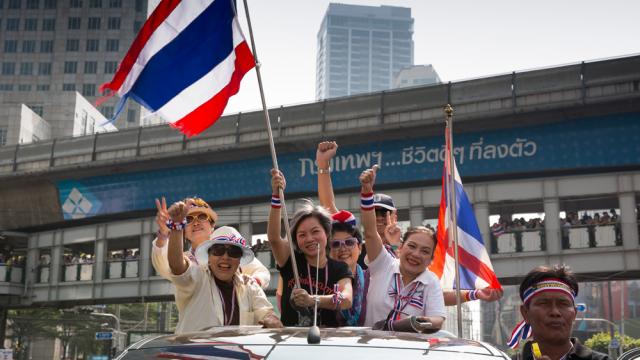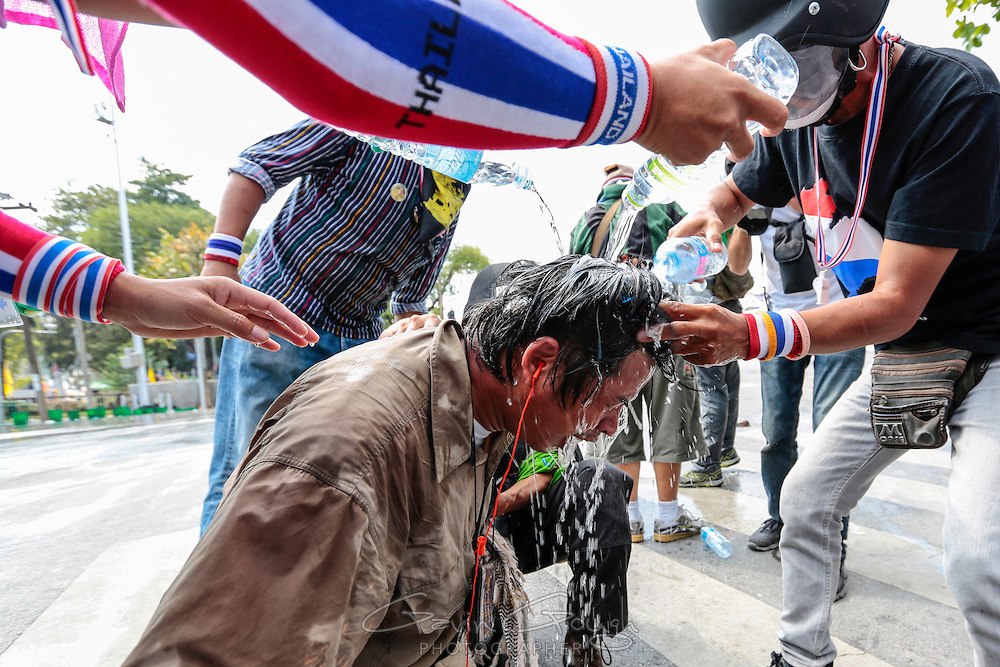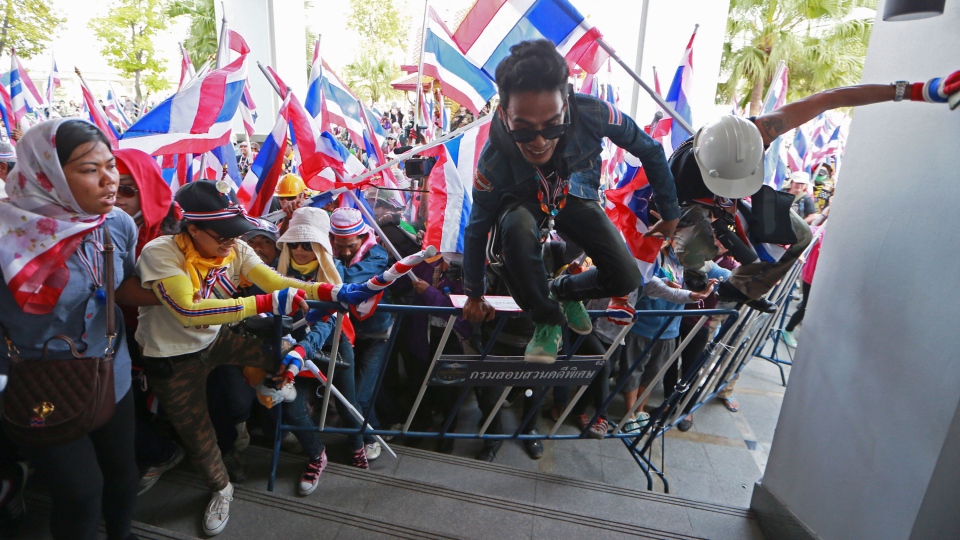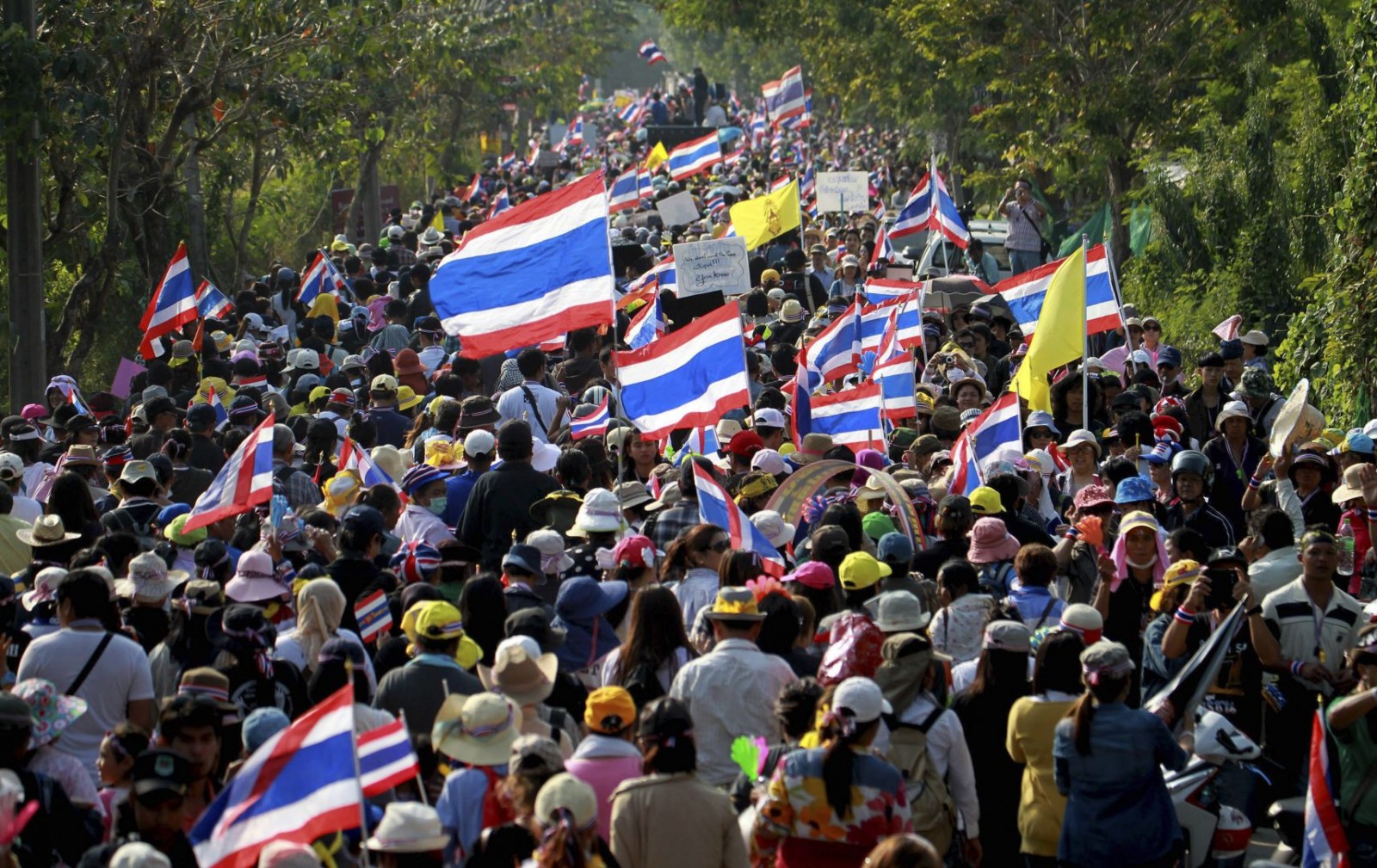
BANGKOK – In a bid for what many here are calling vital democratic change, protesters by the thousands are continuing their push on to the streets of Thailand's capital despite violent protests earlier this month that reportedly left one police officer dead and scores of protesters injured.
On Thursday, nearly 2,000 anti-government demonstrators gathered at locations across the capital which again turned violent. Police reported 129 people injured, including 25 police officers. A police spokesman had previously reported 35 officers injured, but some of the injured had been counted twice.
Those demonstrating liken their movement to a popular uprising – one they say could determine the Southeast Asian country’s immediate future. Political rights lie at the heart of the protests, where activists have told Occupy.com they are prepared to shut down the capital to press for change in the status quo military and political leadership.
Specifically, the protesters want an end to a regime with strong remnants of the Thaksin Shinawatra-era, including current Prime Minister Yingluck Shinawatra, the sister of the former Prime Minister Thaksin who was ousted in a 2006 military coup.
“This is our Thailand and we are tired of being bullied into submission by the military and those who don’t deliver on their promises to change this country in the ways they said during elections,” a protester told Occupy.com on the sidelines of a demonstration that took place last week outside the Thai-Japanese Sports Complex in the capital.
In a bid to cool tensions, Prime Minister Shinawatra dissolved the nation's parliament earlier this month and called for new elections, to be held February 2.
But the announcement did little to ease the outrage in the streets, and many protesters viewed the call for new elections as a ploy to get them to retreat from protests and participate in a voting process already widely viewed as corrupt.
The U.S. Embassy in Bangkok recently took the measure of warning American citizens to avoid the demonstrations and any congested areas in the city. "Even demonstrations that are meant to be peaceful can turn confrontational and escalate into violence. Exercise caution if in the vicinity of any large gatherings, protests, or demonstrations," read the embassy's message.
Activists who have been taking to the street for days, and some now for weeks, say Thailand's political system needs a complete overhaul and are calling for democratic processes and freedoms which they argue have been steadily eroded over the past decade.
“We are here to show the government and the military that the future of Thailand belongs to the people," said one protest organizer, who asked to be called Tina, "and we will not allow corrupt government officials to take our rights away so they can maintain power as our fellow citizens continue to suffer."
The future of Thailand, added Tina, must be based on principles of social justice. “All Thai people are suffering because the government isn’t listening and isn’t caring about the future of us all," she said.
"They care about business deals and corporations and making money. [Governance] needs to be done with the people in mind, and help to create a country where equality is central.”
With elections now little more than a month away, protesters fear the military and police could intervene in an even harsher manner, causing further violence and unrest. Many in the streets say the police-provoked violence fits the government's plan of getting rural people and the less educated to turn out at the polls, maintaining a status quo in the face of unrest in the streets.
The protesters, however, received an unlikely ally in their effort to further postpone elections and introduce new policies into the country, when Thailand's Election Commission recently urged the government to push back the February 2 date in order to bring all sides to the table.
"The current violence that just took place... is something that we have already signaled could happen," the commission said. "We urge the government to postpone the election until a joint agreement from both sides is reached."
In the meantime, the government and protesters remain far apart on any discussions or decisions that might leads to a peaceful letup in the streets. For Tina, those sustained actions and protests are the only means of being heard.
“Our voices are important," she said. "We are speaking for all the Thai people, and the government must listen."
3 WAYS TO SHOW YOUR SUPPORT
- Log in to post comments














